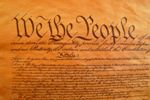While the world watched France’s revolution, an equally important cultural phenomenon was occurring across the Rhine:
 “In the year 1789 … nothing else was talked of in Germany but the philosophy of Kant, about which were poured forth in abundance commentaries, chrestomathies, interpretations, estimates, apologies, and so forth.” That’s Heinrich Heine, who also wrote, “Our German philosophy is really but the dream of the French Revolution … Kant is our Robespierre.”
“In the year 1789 … nothing else was talked of in Germany but the philosophy of Kant, about which were poured forth in abundance commentaries, chrestomathies, interpretations, estimates, apologies, and so forth.” That’s Heinrich Heine, who also wrote, “Our German philosophy is really but the dream of the French Revolution … Kant is our Robespierre.”
More soberly, German historian Friedrich Meinecke connected the philosophical “dream” to politics this way: “In the 1780s the critique of pure reason had conquered all minds, but in the following decade Kant’s thoughts on practical reason became the catalyst for a genuine social movement” (The Age of German Liberation, 25).
 Meanwhile, across the Atlantic, a very different kind of intellectual and political revolution had come to fruition in the 1780s.
Meanwhile, across the Atlantic, a very different kind of intellectual and political revolution had come to fruition in the 1780s.
Kant/Robespierre or Locke/Washington. It’s still our choice.